
Georgian opposition groups have refused to recognise the results of yesterday’s parliamentary elections after preliminary results gave Georgian Dream a strong lead.
As talks between opposition groups continue and thousands take to the streets, several opposition leaders have called for the opposition to boycott parliament. Further protests against the results have been announced.
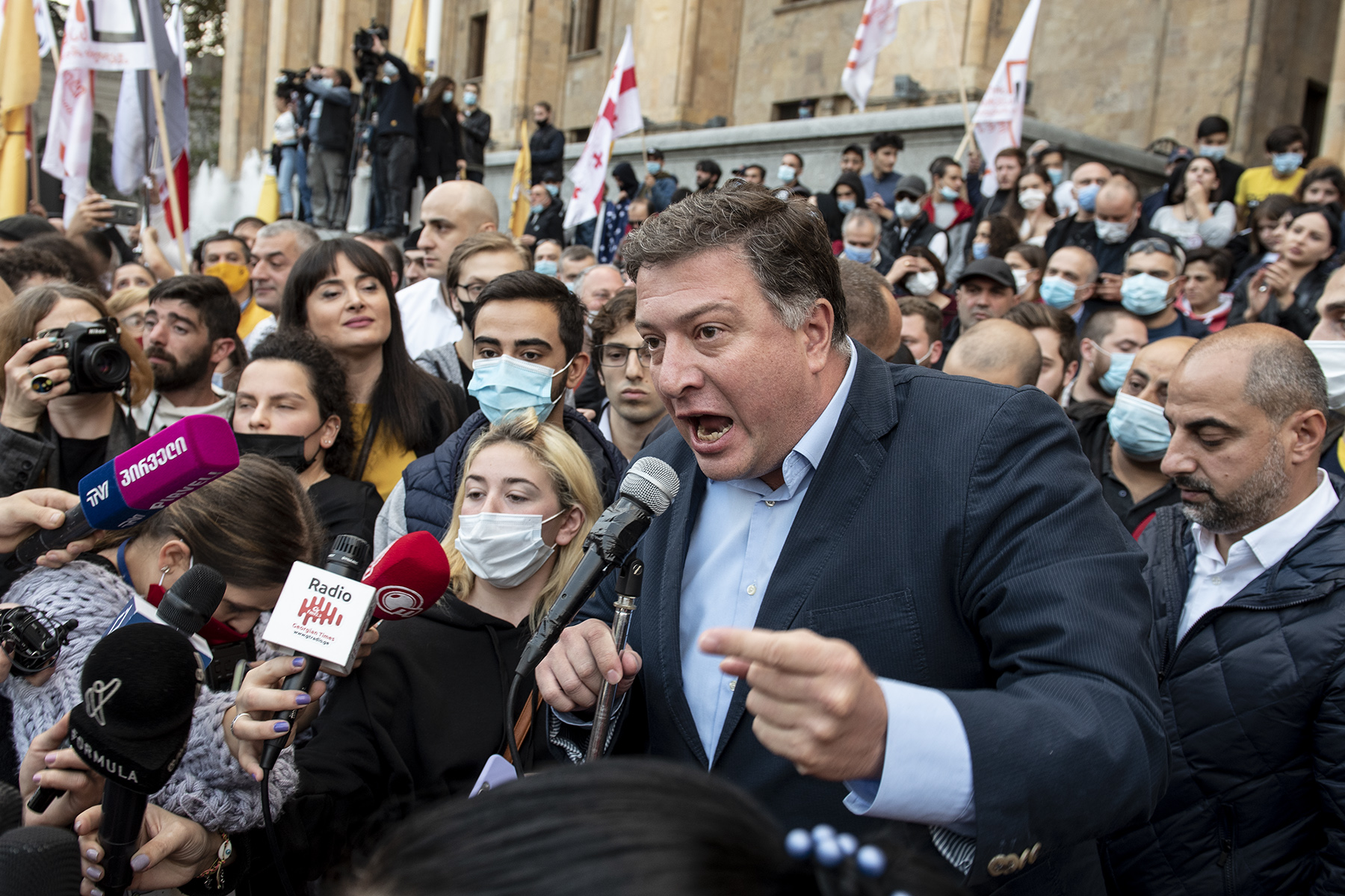
With results counted from 100% of polling stations counted, Georgian Dream lead the proportional list with 48% of the vote. The results suggest they have won 75 seats so far, one short short of a majority.
The UNM came in second with 27% and European Georgia trailing in third with 4%.
The results show Georgian Dream candidates winning outright in 14 of the 30 majoritarian districts.
In the remaining 16, no candidate won more than 50% and a second round will be held on 21 November. Georgian Dream’s candidates came first in 15 of these, with the UNM’s Nika Melia the only opposition candidate coming first, with 44% in Tbilisi’s Gldani District.
The preliminary results would give nine parties seats in parliament, far more diverse than the previous convocation.
Changes to the electoral system passed in June had bolstered opposition hopes of denying Georgian Dream the 76 out of 150 seats needed to form a government.
The changes drastically reduced the number of seats elected through the majoritarian component of the system, which has traditionally benefited the party in power. They also introduced a 40.5% vote share requirement for any party to form a government alone.
‘The worst election under Georgian Dream’
Grievances among opposition groups — including all those expected to have representation in the 10th convocation of the Georgian parliament — grew throughout last night as results from some of the polling stations began to arrive later than expected. Several have accused the government of stealing the election.
The OSCE observation mission released a preliminary report noting that the elections were held in a competitive environment and with respect to fundamental freedoms.
‘Nevertheless, widespread allegations of voter pressure and the blurring of the border between the ruling party and the state have eroded public confidence in some aspects of the election process,’ the report said.
Several local watchdog groups also raised concerns, although none joined opposition calls for a rerun of the election.
The International Society for Fair Elections And Democracy (ISFED), a major independent election watchdog in Georgia, said that 8% of protocols summarising the votes included more or less ballots than voter signatures.
‘A trend of such proportions have not been identified in recent years’, ISFED chair Elene Nizharadze said.
According to watchdog, the discrepancy could have affected the results by as much as 4.1%.
Nizharadze called on the Central Election Commission to immediately address the difference by recounting the votes in the relevant polling stations in the presence of observers and political groups.
On election night, ISFED identified violations of voter secrecy as among the biggest problems during the vote. They reported cases of voters coming out of cabins with unfolded ballot papers visible to others inside polling stations.
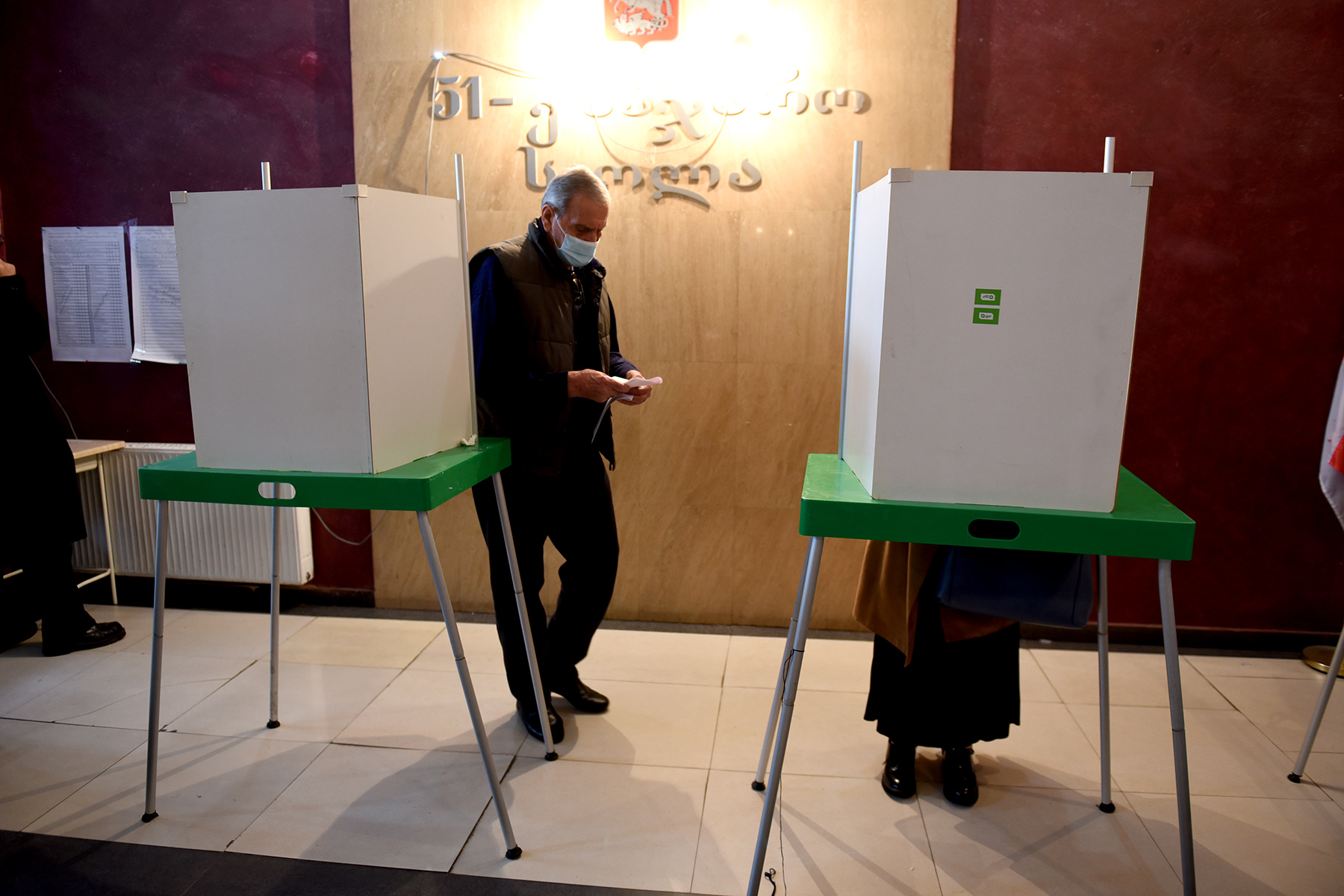
ISFED also said that the presence of party activists keeping a record of party supporters showing up to vote outside the polling stations, though not illegal, persisted as a problem.
Another local watchdog group, the Georgian Young Lawyers’ Association (GYLA) corroborated the problem of discrepancy in voter signatures and ballots counted, and also offered a scathing evaluation of the 31 October election.
GYLA chair Sulkhan Saladze called the vote on Saturday the ‘worst held under Georgian Dream’.
GYLA identified violence and voter pressure as among the biggest problems, along with breach of secrecy of marking procedures and secrecy of voting.
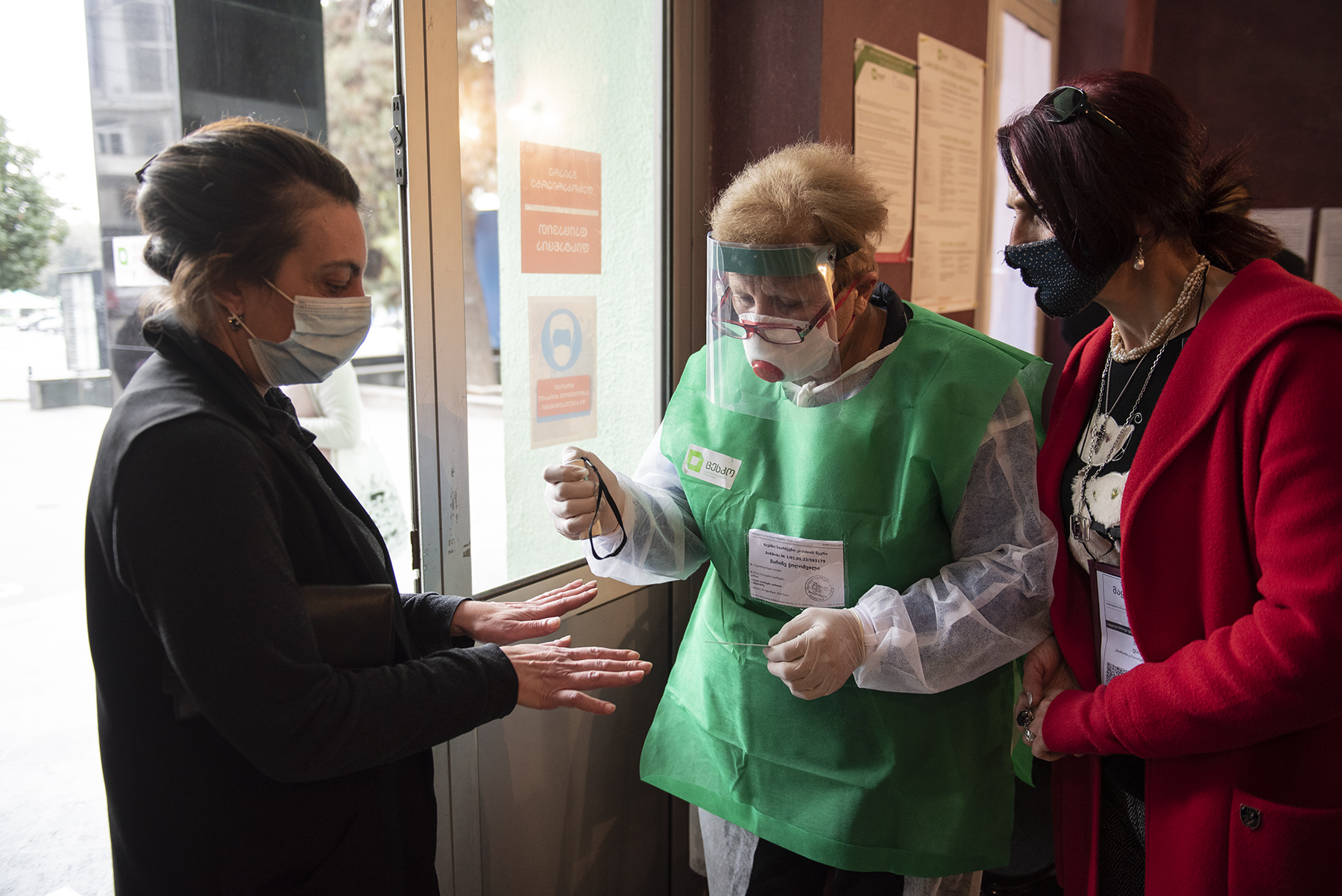
In one instance, local watchdog group Human Rights Center reported about a voter in Sagarejo Municipality taking a picture of his own ballot paper after voting and leaving the station abruptly.
In recent years, pressuring voters to prove they voted as instructed has been a concern. In the run-up to the 31 October vote, candidate Ana Dolidze went as far as suggesting a ban of mobile phones in polling stations.
In one instance, GYLA also underlined cases of observers being obstructed from working, including an observation group ‘affiliated with’ the opposition Strength in Unity coalition.
An election amid a pandemic
The election was held as Georgia has seen a sharp rise in the number of confirmed cases of COVID-19, reaching almost 2,000 new cases per day. The National Centre for Disease Control (NCDC) have anticipated that COVID-19 numbers will peak in the second half of November.
Georgian PM Giorgi Gakharia claimed throughout the election campaign that polling stations would be ‘safer than supermarkets’, with several safety measures being implemented.
‘Safer than supermarkets’: as COVID-19 surges, Georgians brace for parliamentary vote
On the day there was a somewhat confused implementation of anti-coronavirus measures at several polling stations.
According to the rules, voters were required to remove their face masks twice to be identified, upon entering the polling station and again when registering. The measure was not consistently enforced with reports of voters not being asked to do so or being identified only once.
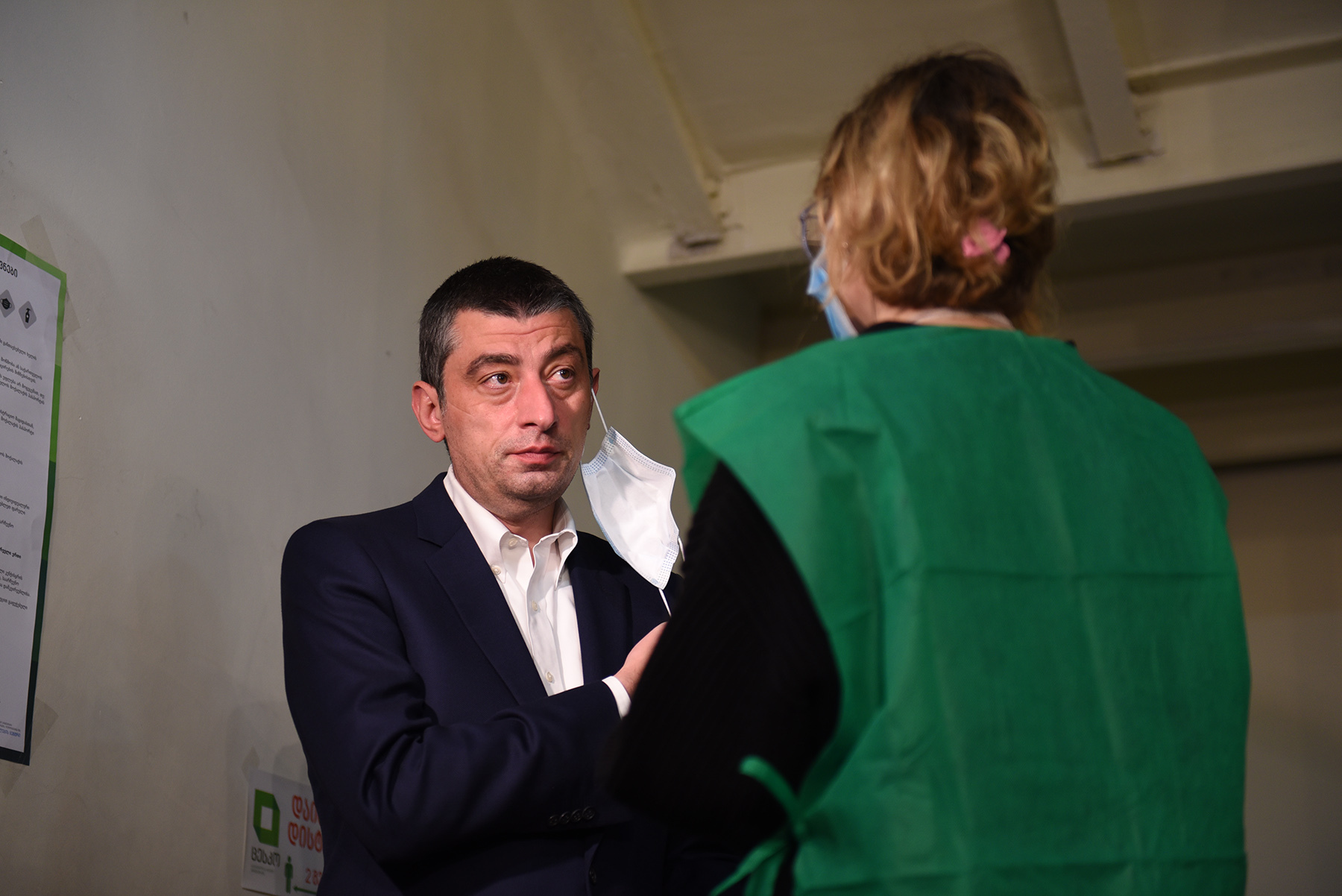
Social distancing was also mixed, with some polling stations more effective than others.
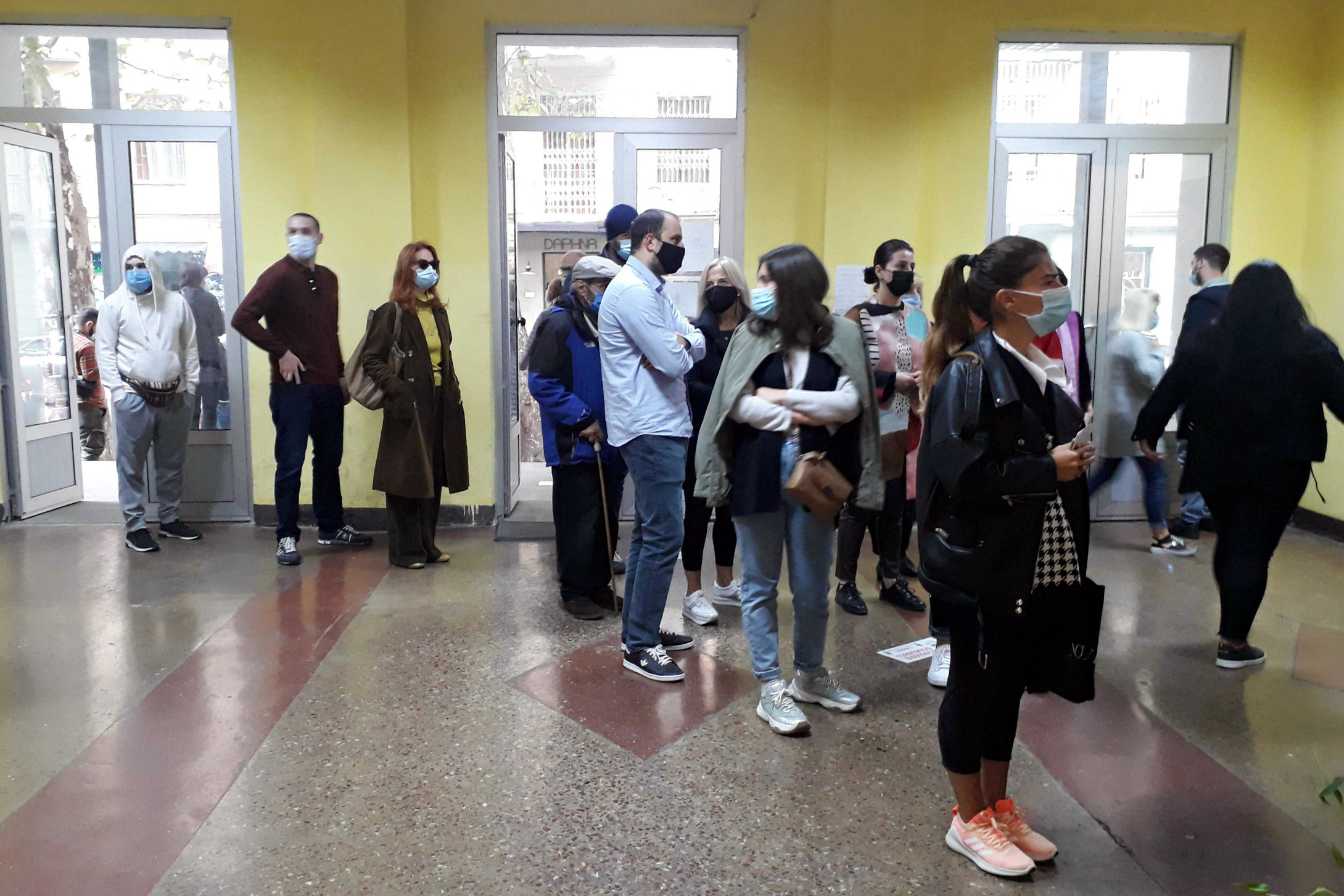
The authorities had said that thermal screening would not be required for voters before entering a polling station, but some local electoral commissions did so. This included a polling station in the #170 school in Tbilis’s Vake District where voters were screened before entering.
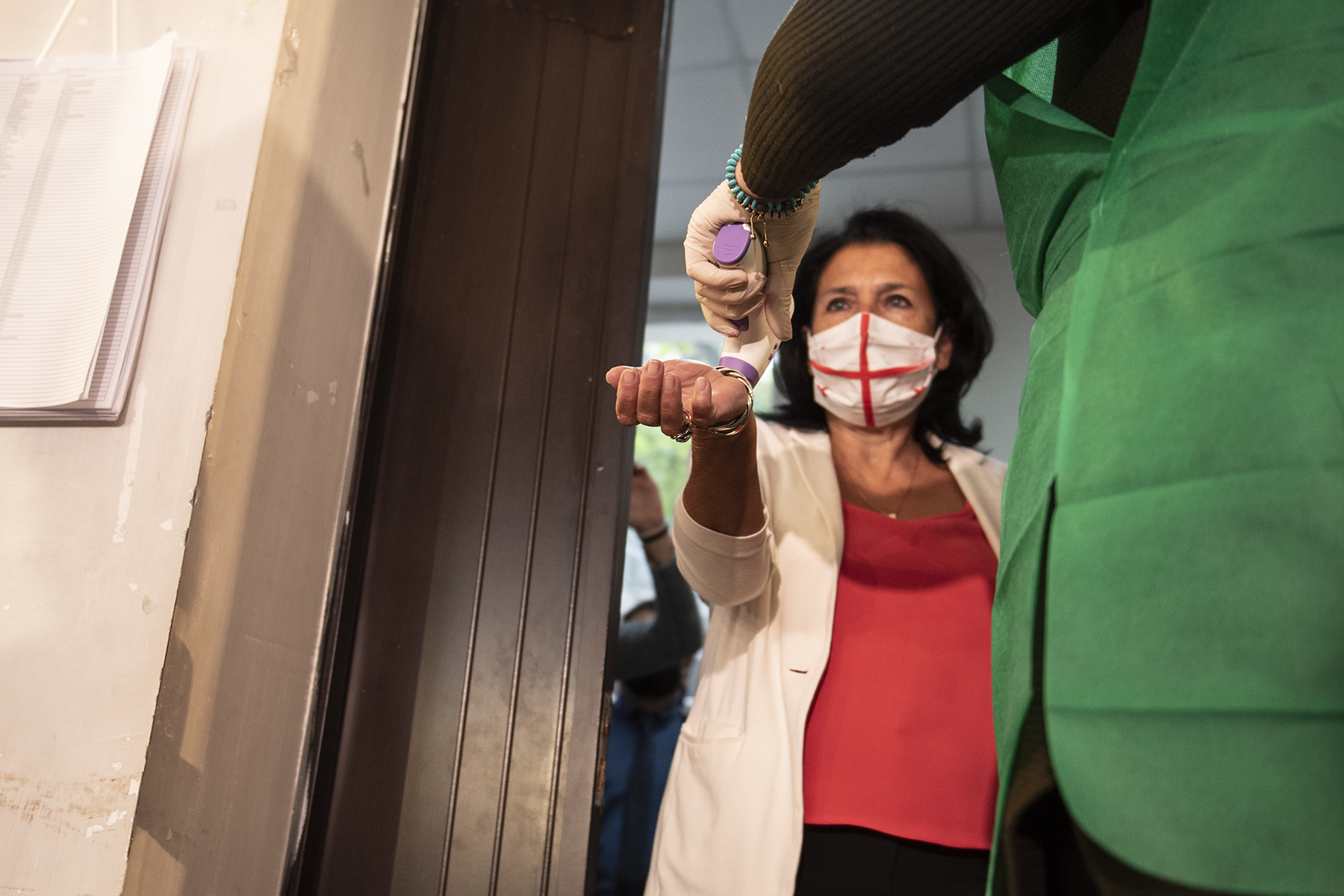
In another polling station in Mtatsminda, a member of the electoral commission was reprimanded by another for attempting to screen voters, with the measure reportedly reserved for staff and observers.
It is unclear if any voters with high temperatures were turned away.







